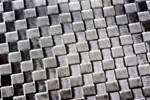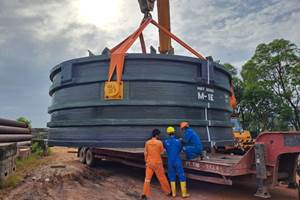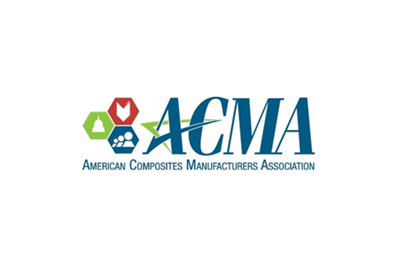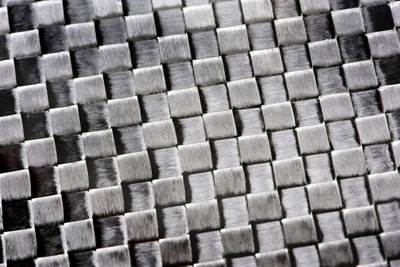Aramco, ACI launch new center to develop, promote nonmetallic material use for construction
Center of Excellence for Nonmetallic Building Materials to develop, disseminate and adopt consensus-based standards for concrete design, construction and materials.
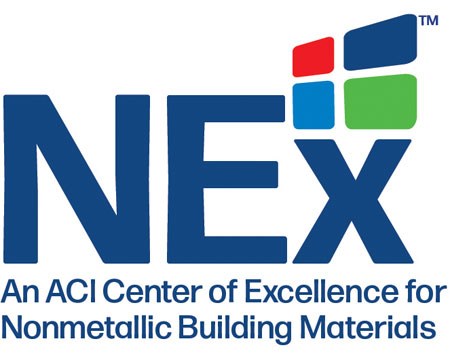
Photo Credit: Aramco Americas, American Concrete Institute
Aramco Americas (Houston, Tex., U.S.) and the American Concrete Institute (ACI, Farmington Hills, Mich., U.S.) announced on March 28 the launch of NEx: A Center of Excellence for Nonmetallic Building Materials to develop and promote the use of nonmetallic materials in the construction sector (see CW’s report on Saudi Aramco’s use of ACI standards to mandate FRP rebar structures in corrosive environments).
Based at ACI’s world headquarters in Michigan, NEx will focus on accelerating the use of nonmetallic materials and products in construction, leveraging ACI's role as a leading authority and resource for the development, dissemination and adoption of consensus-based standards for concrete design, construction and materials. It also plans to expand its scope to include the use of nonmetallics in other construction materials, such as composite cladding, asphalt and soil. The Center looks to draw additional partners from leading academic institutions, industries, technical societies, standard bodies, manufacturers and professionals.
“The Center's mission will be to collaborate globally on using nonmetallic materials in the built environment by driving research, education, awareness and technology adoption,” says Jeffrey W. Coleman, ACI president. “Expanding incorporation of nonmetallic materials and products in the built environment will improve sustainability, contribute to a lower carbon footprint, and enhance the durability and longevity of structures.”
Nonmetallic materials are increasingly being deployed across multiple industries, including oil and gas, construction, automotive, packaging and renewables. They offer several advantages over metallic materials, such as corrosion-resistance, reduced weight, increased durability, lower cost and improved environmental efficiency.
Aramco Senior Vice President of Technical Services Ahmad Al-Sa'adi says that Aramco has been developing and deploying nonmetallic solutions within its own operations for more than 20 years, and offers lifecycle cost, efficiency and environmental advantages over their metal alternatives. “The potential for using nonmetallic advanced polymetric materials, however, goes way beyond the oil and gas sector and includes the building and construction industries where there is significant potential. That is why this new Center of Excellence for Nonmetallic Building Materials offers enormous and exciting opportunities,” he adds.
According to Aramco, it is already a leader in the use of nonmetallic materials in oil and gas facilities to reduce corrosion, weight and the cost of construction and operation. This initiative with ACI is part of the company's broader strategy to enter new markets, leveraging its hydrocarbon resources and technology to deliver advanced polymeric materials solutions across industries.
Similarly, over the past four decades, ACI says it has been convening the industry's brightest minds to advance nonmetallic technologies. With numerous published guides, reports and specifications on nonmetallics in concrete, including fiber-reinforced polymers and fiber-reinforced concrete, NEx will serve as a catalyst to incorporate more than 40 years of knowledge into the further acceleration of nonmetallic materials and technology.
“Our founding member, Aramco Americas, aligns with our vision to effectively meet the demands of a changing world by setting standards for the development and adoption of nonmetallic materials in building and construction,” adds Mr. Coleman. “ACI is pleased to have Aramco's support in leading this dialogue with industry stakeholders around the world.”
Related Content
Premier Composite Technologies, Sicomin support Holy Mosque Mataf extension project
The Grand Mosque’s 216,800-square-meter Mataf ceiling demonstrates the architectural possibilities when using composites.
Read MoreComposites end markets: Infrastructure and construction (2024)
Composites are increasingly used in applications like building facades, bridges, utility poles, wastewater treatment pipes, repair solutions and more.
Read MoreComposites reinvent infrastructure
Celebrating National Composites Week, CW shares ways in which composites continue to evolve the way we approach infrastructure projects.
Read MoreSwedish parking garage to incorporate decommissioned wind blades
Architect Jonas Lloyd is working with Vattenfall to design the multistory building with a wind blade façade, targeting eco-friendly buildings and creative ways to remove blades from landfills.
Read MoreRead Next
ACMA, composites experts testify for more resilient infrastructure
Industry leaders testified to the U.S. Congress for research and use of advanced materials to combat climate change-related infrastructure damage.
Read MoreWhite House Executive Order to build supply chain resilience for carbon fiber
Commitment to comprehensively address U.S. supply chain risks highlights carbon fiber as one of four key products that will be reviewed.
Read MoreAssembling the Multifunctional Fuselage Demonstrator: The final welds
Building the all-thermoplastic composite fuselage demonstrator comes to an end with continuous ultrasonic welding of the RH longitudinal fuselage joint and resistance welding for coupling of the fuselage frames across the upper and lower halves.
Read More


